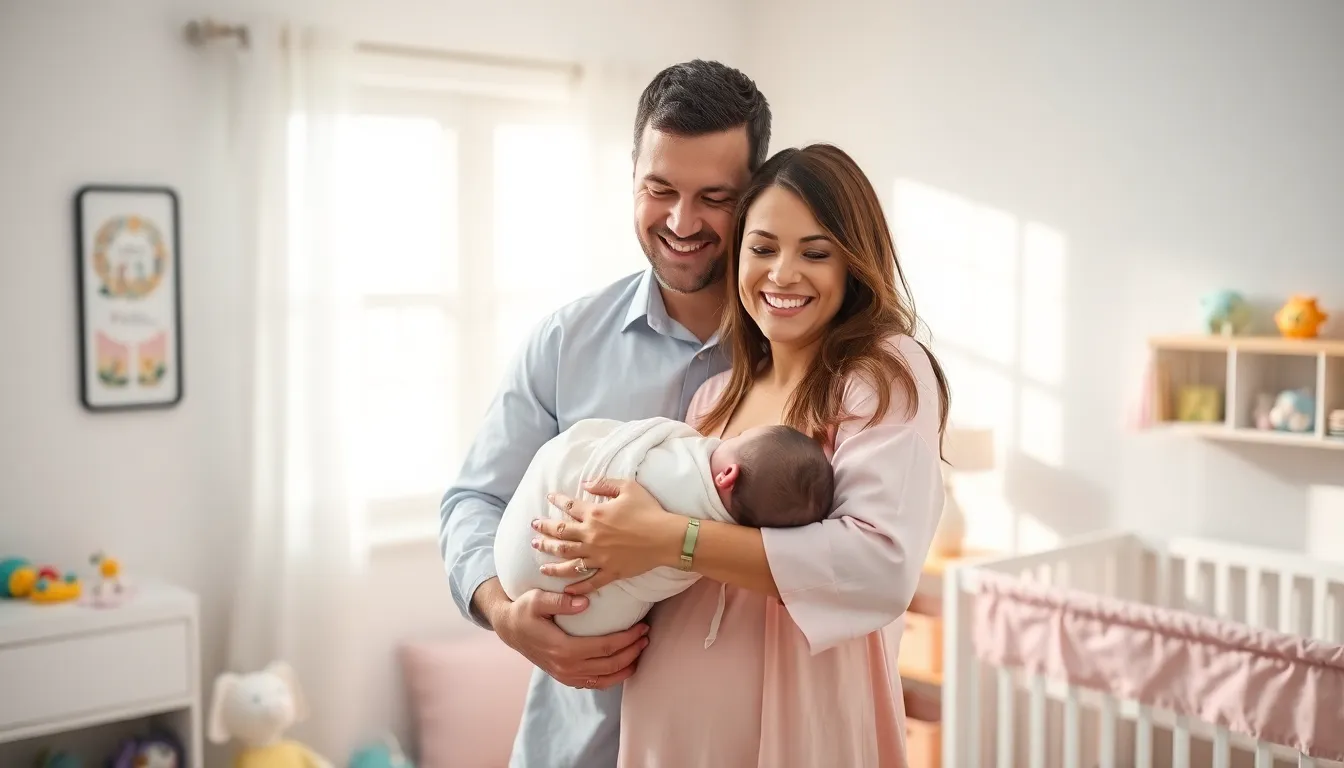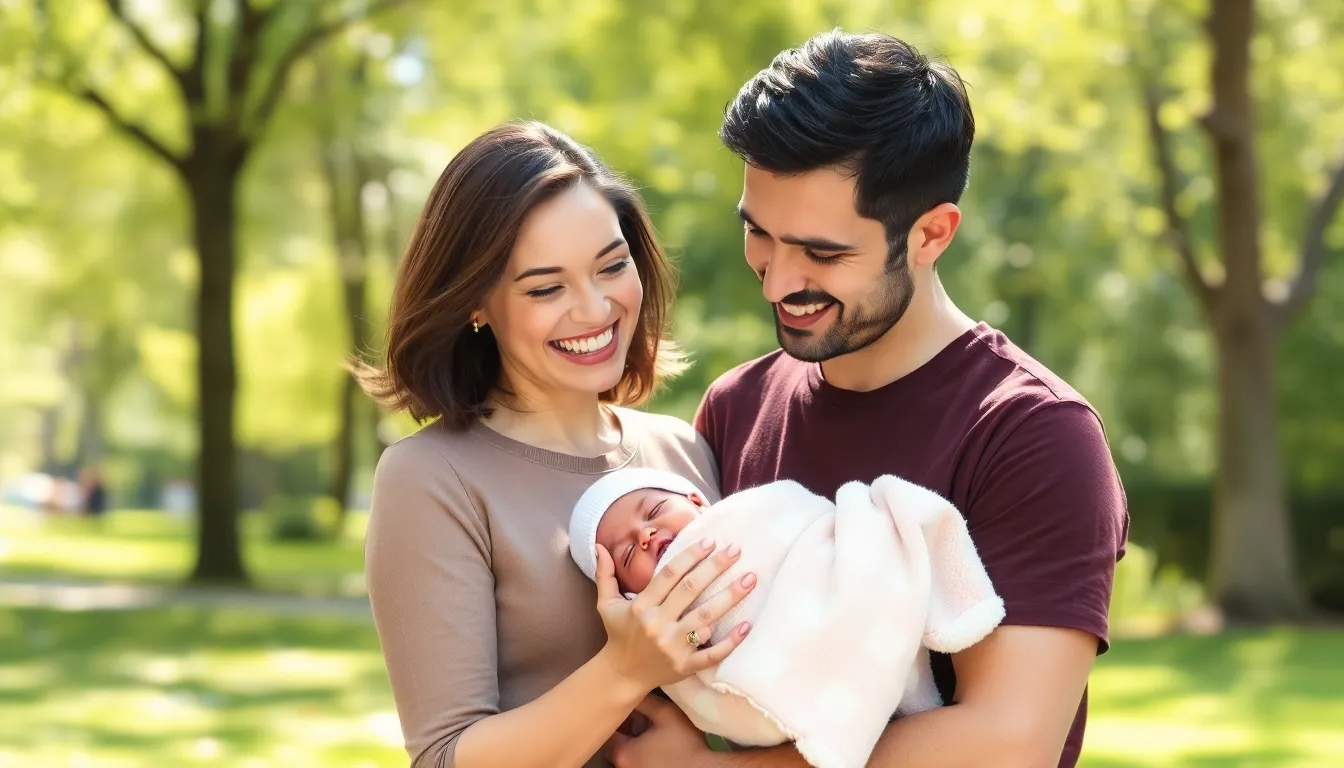In the world of fertility, hope often feels like a rare commodity. But when it comes to donor egg success stories, it’s like finding a pot of gold at the end of a rainbow. These tales aren’t just heartwarming; they’re downright inspiring. Imagine couples who thought parenthood was a distant dream suddenly holding their little miracles, all thanks to the incredible gift of donor eggs.
Table of Contents
ToggleUnderstanding Donor Egg Success Stories
Donor egg success stories embody hope for many couples struggling with infertility. Each success story provides insight into the transformative potential of using donor eggs. Couples who once faced despair often experience joy when they finally welcome a child, thanks to donor egg programs.
Numerous individuals share their experiences, illustrating the diverse paths to parenthood. Success varies across stories, yet the emotion remains consistent. Families embrace the journey, often sharing the complexities of their experiences in blogs and support groups. Empowering others, these shared narratives foster a sense of community among those with similar challenges.
Statistics reinforce the efficacy of donor egg treatments. The live birth rate for donor egg cycles often exceeds 50 percent, reflecting a higher chance of success compared to traditional IVF. These figures highlight the advantages of donor eggs for women with diminished ovarian reserve or advanced maternal age.
Using donor eggs can lead to the birth of healthy babies. Many couples find happiness and fulfillment, as these stories encapsulate the emotional resilience required for the journey. Some couples express profound gratitude toward their egg donors, acknowledging their role in creating families.
Donor egg success stories not only celebrate parenthood but also illuminate the journey couples undertake. They serve as beacons of hope, encouraging others to consider this path when facing fertility challenges.
Real-Life Success Stories

Donor egg success stories provide powerful examples of hope and determination. These real-life accounts illustrate the profound impact of donor egg programs on families.
Case Study: A Couple’s Journey
After years of infertility treatments, a couple turned to donor eggs. They found success through a reputable clinic specializing in assisted reproductive technology. Their chosen donor shared many of their values and physical traits. Upon implantation, they experienced joy when discovering they were pregnant. Nine months later, they welcomed a healthy baby girl into their lives, marking the beginning of a new family chapter. They often express deep gratitude for their donor, recognizing her role in their journey. This couple’s experience underscores the effectiveness of donor eggs, with a live birth rate exceeding fifty percent for similar cases.
Case Study: Single Mother’s Triumph
One single mother faced a tough decision after years of waiting for the right partner. She chose donor eggs out of a desire for parenthood. Researching various clinics, she carefully selected a donor who matched her characteristics. The implantation process proved successful, leading to her exciting pregnancy announcement. Overjoyed, she embraced the journey ahead, ready to navigate motherhood alone. Upon the birth of her healthy son, she celebrated her personal triumph. This single mother’s story demonstrates the accessibility of donor egg programs, inspiring others to pursue their dreams of family, regardless of relationship status.
Factors Influencing Success Rates
Several factors influence the success rates of donor egg cycles. Understanding these can empower couples on their fertility journeys.
Age of the Egg Donor
Age plays a crucial role in the success of donor egg treatments. Research indicates that younger egg donors, typically in their 20s or early 30s, present higher success rates due to better egg quality. These donors generally contribute eggs with fewer chromosomal abnormalities, increasing the chances for successful implantation and healthy pregnancies. Success rates often exceed 60 percent when using eggs from donors under 30 years old. Additionally, a younger donor can lead to fewer complications during pregnancy for the recipient, enhancing the overall experience.
Recipient’s Health Condition
The recipient’s health condition significantly impacts the success of utilizing donor eggs. Factors like age, uterine health, and overall well-being contribute to the likelihood of achieving pregnancy. Women with optimal health conditions face better chances, as well-managed medical issues like diabetes or hypertension can lower risks during pregnancy. Certain assessments, such as evaluating uterine lining and hormone levels, provide insights into readiness for implantation. A recipient receiving proper medical guidance can also enhance the likelihood of a successful outcome, leading to healthier pregnancies and births.
Emotional Impact of Donor Egg Success
The emotional impact of donor egg success is profound for many individuals and couples. Achieving parenthood through donor eggs sparks joy and fulfillment, transforming lives.
Joy and Fulfillment
Many parents experience overwhelming happiness after welcoming a child through donor egg programs. Success stories reveal deep emotional connections between parents and their children, often surpassing expectations. Celebrating milestones, like first birthdays or school events, creates lasting memories that enhance their family bonds. Gratitude towards the egg donors remains a common sentiment, recognizing the invaluable role they played in this journey. Stories of families, ranging from couples to single parents, illustrate the joy found in unexpectedly fulfilling dreams of parenthood.
Managing Expectations
Managing expectations is crucial during the donor egg journey. Many couples learn that success may not happen immediately, and this realization helps them remain emotionally prepared. Success rates for donor egg cycles exceed 50 percent, yet individual experiences vary. Factors like donor age, health conditions, and clinic quality contribute to outcomes. Preparing for various scenarios strengthens resilience and promotes a balanced perspective. Open communication with medical professionals also aids in setting realistic goals, allowing families to nurture hope while understanding the process’s nuances.
Tips for Choosing a Donor
Considering a donor egg is a significant decision. Prioritizing the age of the donor stands as one of the most critical factors. Women under 30 often provide higher-quality eggs, yielding success rates exceeding 60 percent. Assessing the donor’s medical history ensures understanding of potential inherited conditions. A thorough analysis of the donor’s lifestyle choices offers insight into their overall health.
Researching reputable clinics helps establish trust and transparency. Clinics vary in success rates, so reviewing their statistics and patient testimonials proves essential. Seeking guidance from medical professionals allows couples to discuss preferences, values, and expectations. Engaging in open conversations with the clinic ensures alignment with personal goals.
Understanding the emotional aspects of the process is equally important. Many couples experience a rollercoaster of emotions during their journey, emphasizing the need for strong support systems. Building connections with individuals who have undergone similar experiences creates a sense of community. Exploring support groups or counseling services can provide additional resources.
Considering the donor’s physical characteristics might help couples find someone who reflects their preferences. It is essential to clarify what traits, if any, hold significance to the recipients. Establishing a healthy relationship with the donor fosters gratitude and respect. Opting for anonymous or known donors comes down to personal comfort levels and desired openness in future interactions.
Deciding on the right donor ultimately requires reflection and careful deliberation. Embracing the journey with patience not only helps in making informed choices but also enriches the overall experience. Making connections during this period reinforces resilience and optimism, transforming the egg donation experience into a hopeful path toward parenthood.
Donor egg success stories resonate deeply with those navigating the complex journey of infertility. They highlight the profound emotional connections formed through the process and the joy that comes with welcoming a child. Each narrative serves as a beacon of hope and demonstrates the transformative power of donor egg programs.
As couples share their experiences they foster a sense of community and support that can be invaluable. The resilience shown by these families not only inspires others but also emphasizes the importance of thorough research and open communication with medical professionals.
Ultimately the journey through donor egg programs is filled with challenges and triumphs, leading many to discover the fulfillment of parenthood. By embracing this path with patience and understanding, individuals and couples can turn their dreams into reality.





